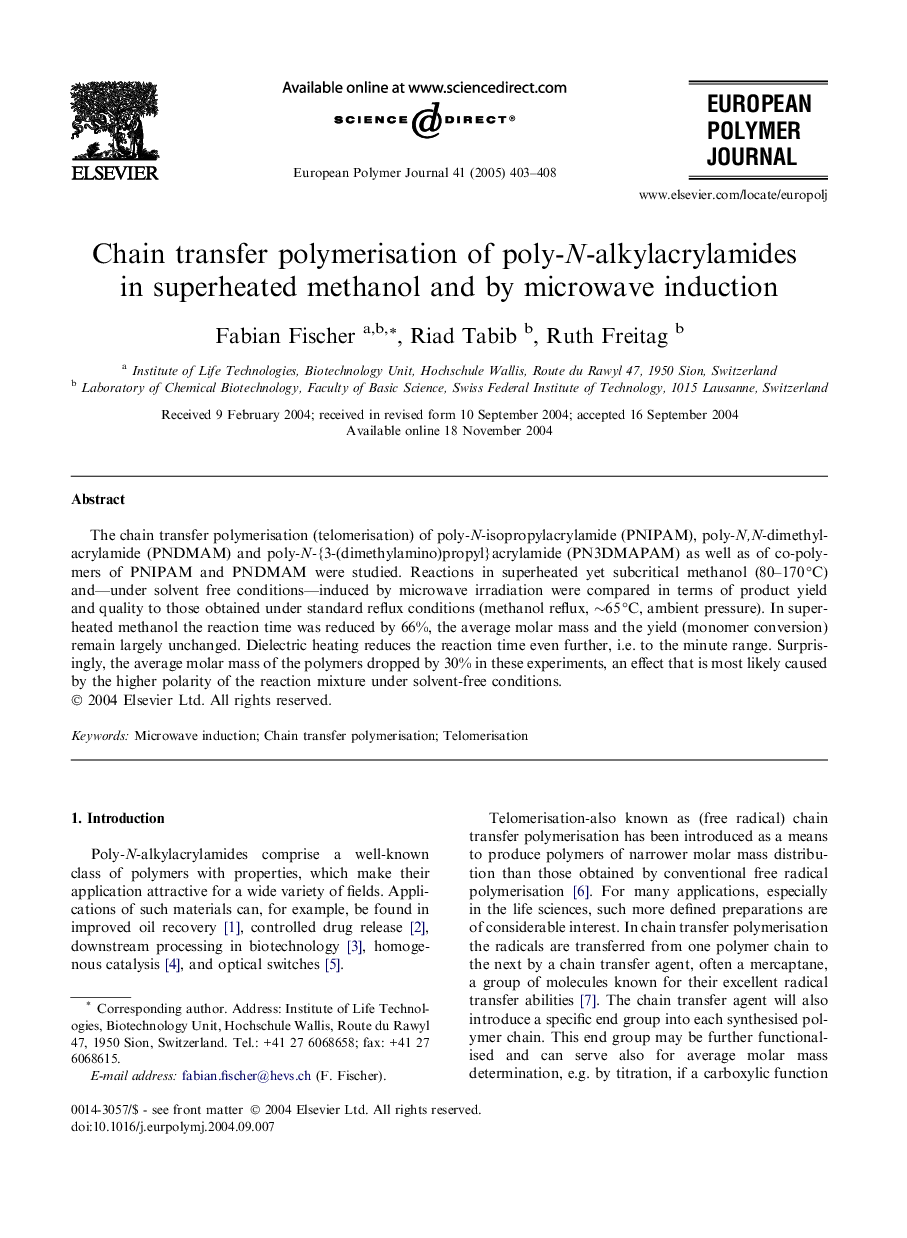| Article ID | Journal | Published Year | Pages | File Type |
|---|---|---|---|---|
| 10608900 | European Polymer Journal | 2005 | 6 Pages |
Abstract
The chain transfer polymerisation (telomerisation) of poly-N-isopropylacrylamide (PNIPAM), poly-N,N-dimethylacrylamide (PNDMAM) and poly-N-{3-(dimethylamino)propyl}acrylamide (PN3DMAPAM) as well as of co-polymers of PNIPAM and PNDMAM were studied. Reactions in superheated yet subcritical methanol (80-170 °C) and-under solvent free conditions-induced by microwave irradiation were compared in terms of product yield and quality to those obtained under standard reflux conditions (methanol reflux, â¼65 °C, ambient pressure). In superheated methanol the reaction time was reduced by 66%, the average molar mass and the yield (monomer conversion) remain largely unchanged. Dielectric heating reduces the reaction time even further, i.e. to the minute range. Surprisingly, the average molar mass of the polymers dropped by 30% in these experiments, an effect that is most likely caused by the higher polarity of the reaction mixture under solvent-free conditions.
Keywords
Related Topics
Physical Sciences and Engineering
Chemistry
Organic Chemistry
Authors
Fabian Fischer, Riad Tabib, Ruth Freitag,
